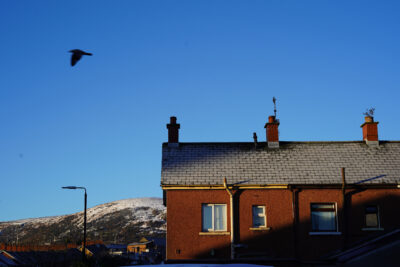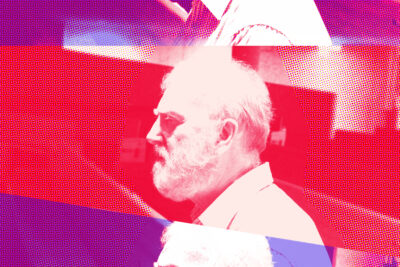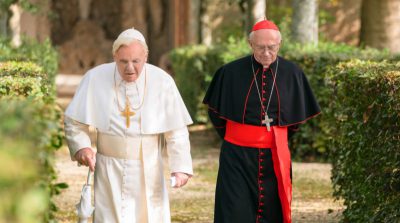At the Movies: ‘The Two Popes’
Read this article in the limited edition print version: order a copy here.
This film review originally appeared in ICN. Our thanks to ICN for the permission to reproduce it.
The film begins with Cardinal Bergoglio in Argentina being summoned to meet Pope Benedict XVI at Castel Gandolfo. The cardinal had been intending to go anyway, to ask the pope’s permission to retire. The initial meeting in the Castel Gandolfo gardens sees Benedict XVI interrogate Bergoglio in what seems like cold fury. The cardinal’s people-friendly, social justice ministry among the poor has led Benedict XVI to fear that doctrine and tradition are being undermined. In a stinging rebuke he tells the cardinal that he disagrees with everything he says and does and asks if Bergoglio is sitting lightly even to his priesthood – whereupon shock and hurt register on the cardinal’s face.
All is not as it seems. In the evening Bergoglio tries repeatedly to get Benedict to sign his resignation papers. Benedict cannot acquiesce: people would take it as a sign that he was criticising Bergoglio and had pushed him into this. Then the tables are turned: it transpires that weary in body and spirit, it is Benedict who intends to retire, and sees Bergoglio as a likely successor. In fact, Benedict seems to accept this, repeating the old saying that each pope is elected to correct his predecessor’s mistakes. The two men then spar, with Bergoglio trying to get Benedict to change his mind.
The film then goes into Bergoglio’s back story, with Benedict saying, ‘I’ve read your files’. This framing device goes on for too long and at this point the film does sag a little. The past includes a young Bergoglio renouncing his girlfriend to enter the Jesuits, and the middle-aged Benedict grappling with Argentina’s period of brutal rule under a junta of generals. During the latter period he distanced the order from Jesuits who were closely identified with the poor, thus exposing them to arrest, torture and even murder. The film is frank about Bergoglio’s well-meaning but misguided attempts to protect his priests by ingratiating himself with the junta. Bergoglio admits to Benedict that one of the survivors always regarded him as a traitor.
Pope and cardinal travel back to the Vatican where the sparring continues, although it is clear that at the same time a rapport is developing. Each makes his confession to the other. When Benedict makes his confession to Bergoglio the content is not audible to us, but the cardinal’s reaction is horror that at some point Benedict XVI knew something (presumably as Cardinal Ratzinger) and did not act on it. I wondered if this was a reference to the infamous Fr Maciel – against whom Benedict did in fact proceed when he became pope. We end with the election of Pope Francis.
The two main characters are beautifully acted. Anthony Hopkins as Pope Benedict conveys an incisive intellect worn down by the cares of office and deteriorating health, an intriguing mixture of frailty and strength. Jonathan Pryce as Cardinal Bergoglio radiates humanity, warmth and an ability to relate to people from all walks of life. It is all sumptuously filmed. The dialogue not only crackles but in the first part is shot through with humour. ‘In Argentina’, Bergoglio tells a bewildered Benedict, ‘tango and football are compulsory.’ How much of the film is true to life? Who knows? But you do wish it were.
Related Stories

Inner State: Passionist Life in North Belfast
North Belfast is a community that has seen immense trauma over the past century – defined by political forces beyond its control.
May 30 2024

To Illumine the Mind: the Catholic diaspora in Paris
In Paris, Martin Coffey leads a church overflowing with working class immigrants. The picture of religion in France, he tells us, is not what you think.
Mar 01 2024

Positive Faith present a World Aids Day service, ‘The Reason for Hope’
Reflections, music and scripture as well as opportunities for sharing on this World Aids Day online service.
Dec 01 2023




